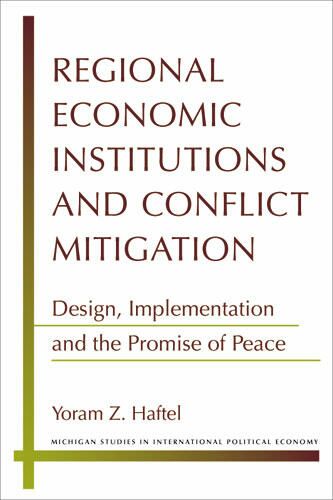Regional Economic Institutions and Conflict Mitigation
Design, Implementation, and the Promise of Peace
Economic integration fosters regional peace
Description
In addition to the explicit goal of advancing mutual economic interests, regional economic organizations (REOs) are intended to foster regional cohesion and peace. Drawing on a data set detailing the institutional features of 25 REOs established during the 1980s and 1990s, complemented by a case study of ASEAN, Yoram Z. Haftel investigates the factors that affect REOs' ability to mitigate interstate military conflict. He finds fewer interstate conflicts among REO members who have developed high levels of economic integration and who cultivate regular interaction among member-states' representatives. Haftel concludes that, with an appropriate institutional design and fully implemented agreements, an REO can indeed play a role in mitigating interstate conflict and make a meaningful contribution to regional peace.
Yoram Z. Haftel is Associate Professor of International Relations at the Hebrew University of Jerusalem.
Reviews
"..Haftel's book is a major milestone on the road to understanding the relationship between regional organizations and conflict. Highly recommended"
- J.R. Strand
—J.R. Strand, Choice

